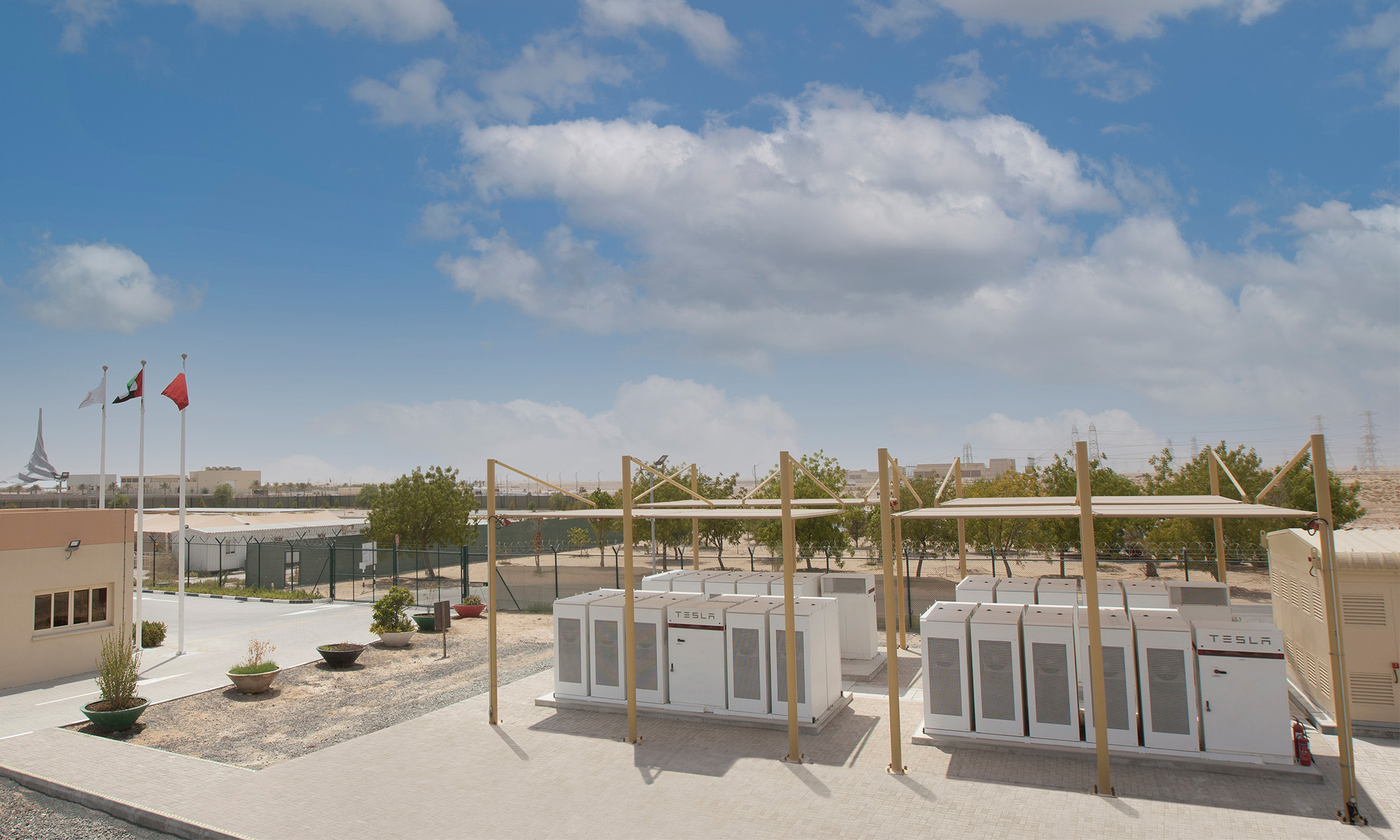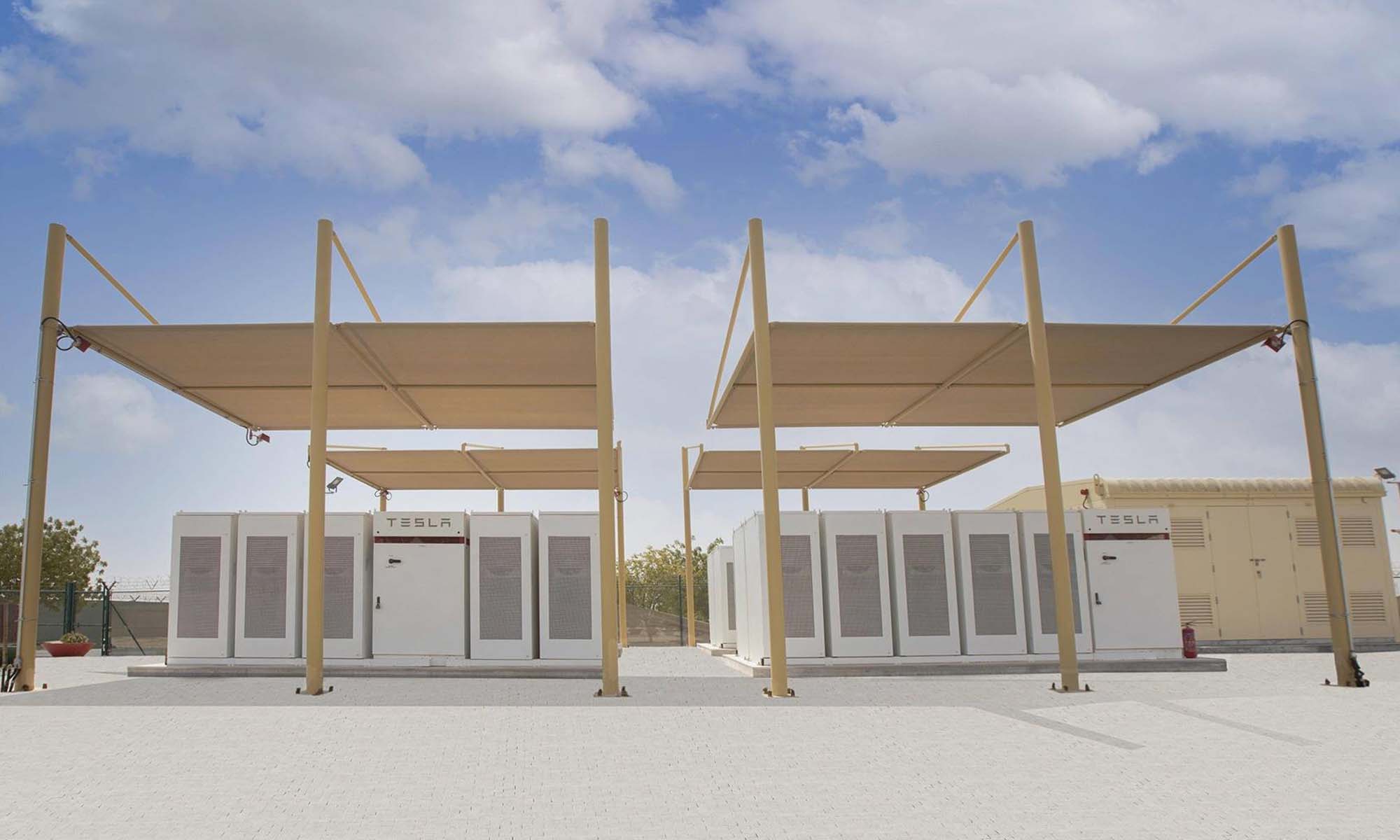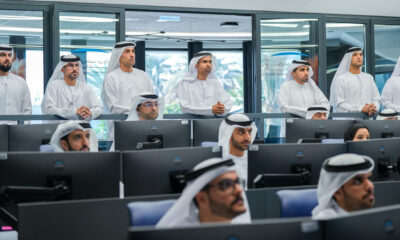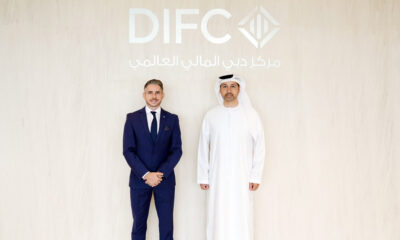News
Tesla Batteries Store Sun’s Power At World’s Biggest Solar Farm In Dubai
The Solar Park currently generates around 1 MW of electricity, but DEWA aims to expand it to 5 GW by the end of this decade.

While there’s no shortage of hot sunny days in the MENA region and the United Arab Emirates in particular, it’s not enough to harness the sun’s energy using solar panels. The generated energy has to be stored somewhere so that it can be utilized when needed, instead of only when the sun is shining. That’s why the Dubai Electricity and Water Authority (DEWA) and Tesla have joined forces to install a Tesla battery energy storage system (BESS) at the Mohammed bin Rashid Al Maktoum Solar Park, one of the world’s largest renewable projects in the world.
“The energy storage project using Tesla’s lithium-ion battery solution at the Mohammed bin Rashid Al Maktoum Solar Park, the largest single-site solar park in the world, aims to diversify the energy mix and enhance energy storage technologies,” said DEWA managing director and CEO Saeed Mohammed Al Tayer.

Another goal of the pilot project is to evaluate the technical and economic capabilities of the technology and to test its role in the integration between clean energy and energy storage to achieve maximum efficiency and reliability.
Currently, the Mohammed bin Rashid Al Maktoum Solar Park can generate around 1 MW of electricity, but DEWA aims to expand it to 5 GW by the end of this decade. To put the number into perspective, a typical nuclear reactor produces approximately 1 GW of electricity.
Also Read: Scientists Discover Bacteria That Makes Toxic Water Safe To Drink
DEWA is also working on other renewable projects, testing a sodium sulphur (NaS) energy solution and developing a 250 MW pumped-storage hydroelectric power station.
Together, these renewable projects aim to realize the Dubai Clean Energy Strategy 2050, whose goal is to produce more than 75 percent of Dubai’s energy requirements from clean, renewable sources to significantly reduce the city’s carbon footprint in the world.
News
Alienware Just Announced Six New Gaming Monitors
The new models include three QD-OLED and three budget-friendly QHD options, expanding the company’s lineup for all gamers.

Alienware has just updated its gaming monitor lineup with six new additions, including the highly anticipated Alienware 27 4K QD-OLED Monitor. The latest wave of releases is set to reach more gamers than ever, offering high-end QD-OLED displays alongside more budget-friendly options.
The latest displays clearly show that the company is doubling down on QD-OLED with three new models sporting the technology. A redesigned Alienware 34 Ultra-Wide QD-OLED Monitor is also making a return, further refining what is already a fan-favorite display.
A Unified Design: The AW30 Aesthetic
All six monitors feature Alienware’s new AW30 design language, first introduced at CES. The AW30 aesthetic brings a futuristic, minimalist look that unites the entire lineup under a cohesive visual identity.
Pushing QD-OLED Even Further
The refreshed Alienware 34 Ultra-Wide QD-OLED Monitor (AW3425DW) builds on its predecessor’s success with a 240Hz refresh rate (up from 175Hz) and HDMI 2.1 FRL support. It also gains G-SYNC Compatible certification alongside AMD FreeSync Premium Pro and VESA AdaptiveSync, ensuring ultra-smooth performance. With a WQHD (3440×1440) resolution and an 1800R curve, this display enhances immersion for both gaming and cinematic experiences.
For those who crave speed, the Alienware 27 280Hz QD-OLED Monitor (AW2725D) pairs a high refresh rate with QHD resolution, balancing sharp visuals with ultra-smooth gameplay. Meanwhile, the Alienware 27 4K QD-OLED Monitor (AW2725Q) delivers stunning clarity with an industry-leading pixel density of 166 PPI, making it the sharpest OLED or QD-OLED monitor available.
Also Read: Infinite Reality Acquires Napster In $207 Million Deal
Worried about OLED burn-in? Alienware’s entire QD-OLED lineup comes with a three-year limited warranty covering burn-in concerns, offering peace of mind for gamers investing in these high-end displays.
Bringing QHD To A Wider Audience
Alongside QD-OLED, Alienware is also releasing three new QHD gaming monitors aimed at more price-conscious gamers. The Alienware 34 Gaming Monitor (AW3425DWM), Alienware 32 Gaming Monitor (AW3225DM), and Alienware 27 Gaming Monitor (AW2725DM) provide a range of sizes and formats to suit different preferences:
- The Alienware 34 Gaming Monitor (AW3425DWM): An ultrawide (WQHD) option for a panoramic, immersive experience.
- The Alienware 32 Gaming Monitor (AW3225DM): A standard 16:9 panel for a traditional but expansive desktop setup.
- The Alienware 27 Gaming Monitor (AW2725DM): A 27” display offering the same performance in a more compact form factor.
All three gaming monitors feature a fast 180 Hz refresh rate, a 1ms gray-to-gray response time, and support for NVIDIA G-SYNC, AMD FreeSync, and VESA AdaptiveSync to eliminate screen tearing. Additionally, with 95% DCI-P3 color coverage and VESA DisplayHDR400 certification, these displays deliver vibrant colors and high dynamic range for lifelike visuals.


























